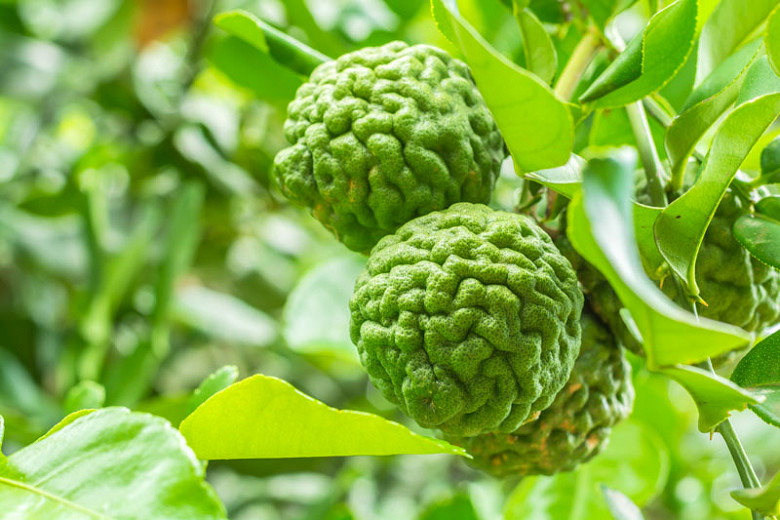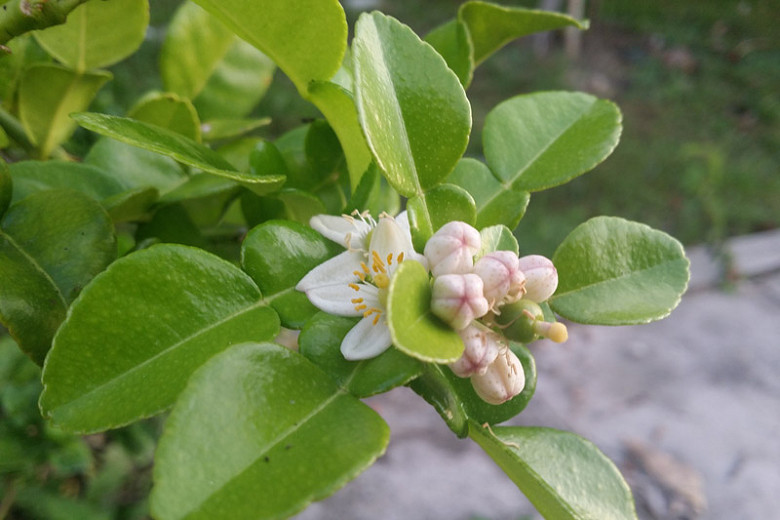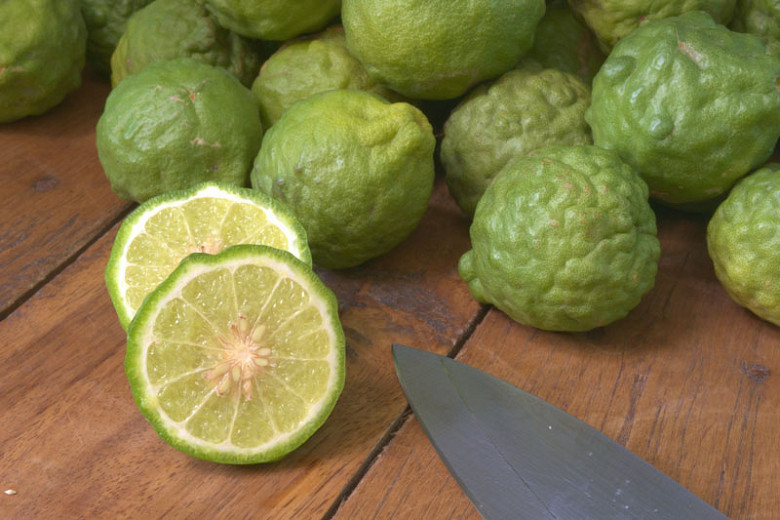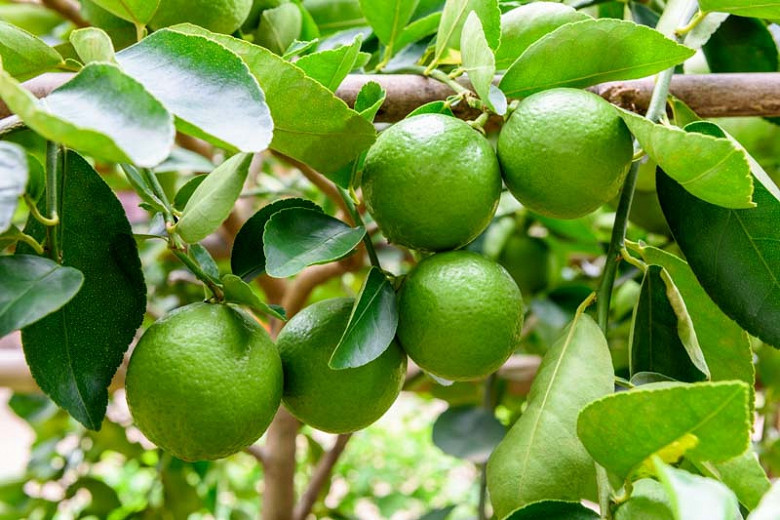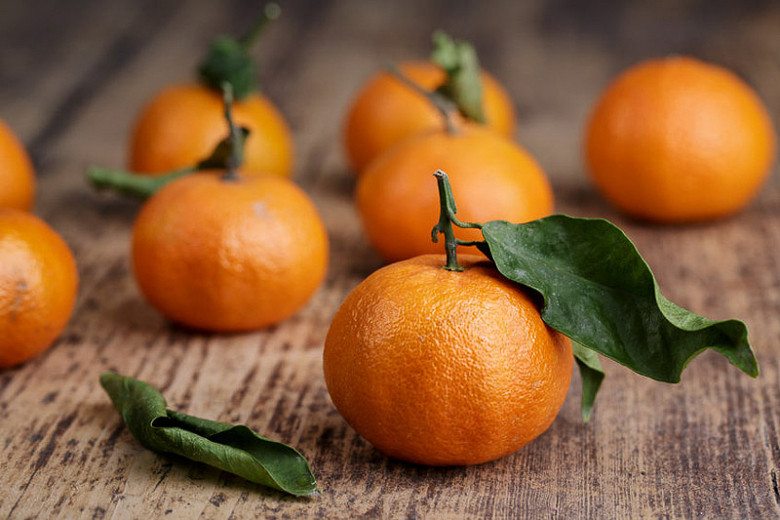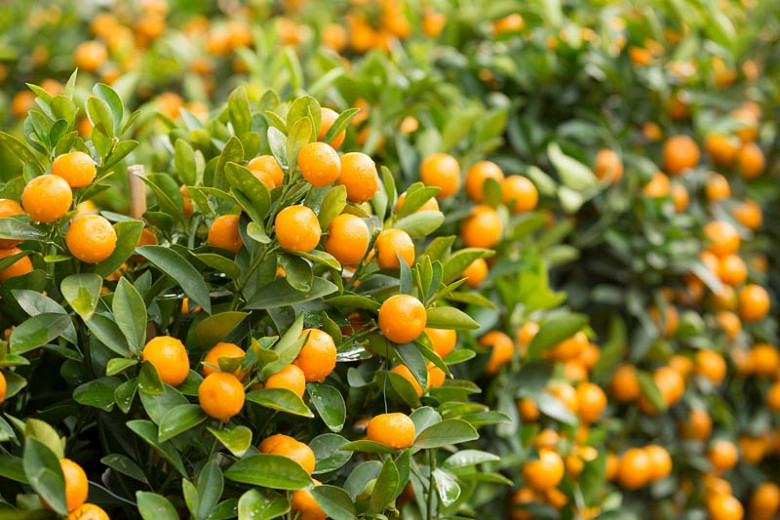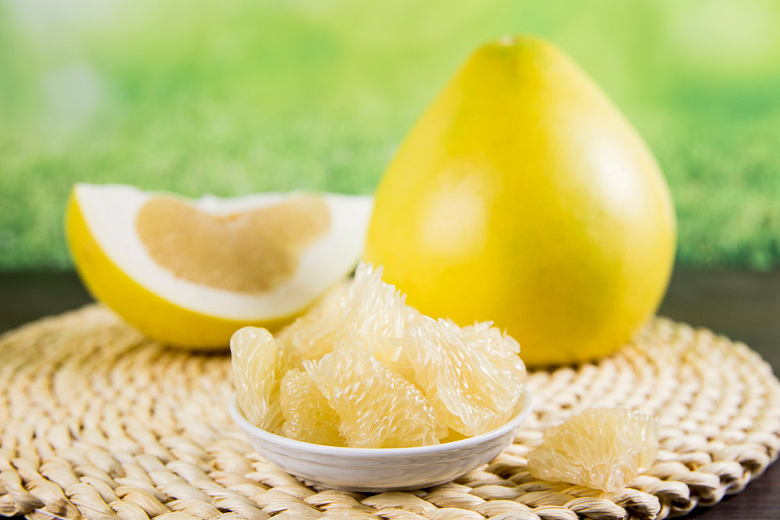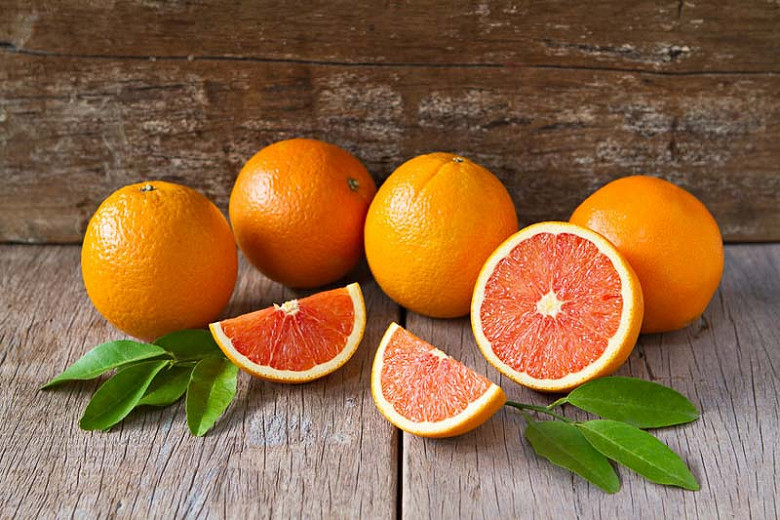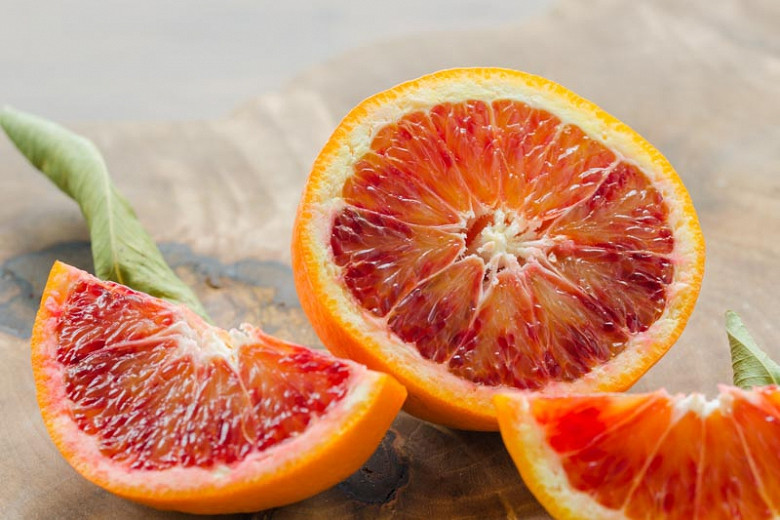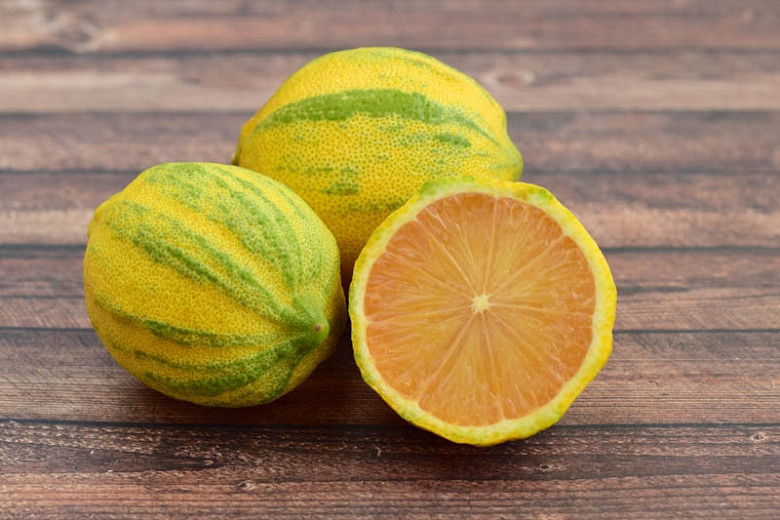Citrus hystrix (Thai Lime)
Native to Southeast Asia, Citrus hystrix (Thai Lime or Kaffir Lime) is a thorny, multi-stemmed, evergreen shrub or small tree, prized for its citronella-scented foliage, profuse flowers, and bumpy green fruits. Its glossy, evergreen two-segmented leaves densely cover the woody stems. Highly aromatic, they are an important ingredient in many Thai dishes including soups, curries, rice, stir-fry, fish cakes, salads, and marinades. Blooming throughout most of the year, the small, fragrant flowers are beautiful with their 4-5 pinkish-white petals and free stamens. They shine against the evergreen foliage. They give way to bumpy fruits, 2 in. across (5 cm), that hang from a petiole almost as large and wide as the leaf blade. Vivid green and glossy when immature, the fruit turns yellow when ripe and falls from the tree. It is not very juicy and has a strong acidic flavor. While sour tasting, its rinds are often used for flavoring. In some places, the fruit is also used to make a shampoo that is insect repelling. Widely naturalized in tropical areas, Thai Lime tolerates temperatures that occasionally drop to 32ºF (0ºC) and can be grown indoors where its delightful citrus fragrance can be enjoyed.
- Grows up to 6-25 ft. tall (2-8 m) and 5-12 ft. wide (2-4 m).
- A full sun to light shade lover, this plant is easily grown in fertile, sandy, well-drained soils. Needs water regularly, but cannot stand flooding or saturated soils. Fertilize every 2 weeks in spring and summer with organic fruit tree fertilizer. Shelter from strong winds.
- Indoor plants should be regularly watered and foliage should be regularly misted.
- Generally pest and disease free. Keep an eye out for root rot in overly moist soils.
- Prune when new growth starts in spring. This will encourage new branches to emerge from just below the cut. Sharp thorns along the stems, so watch for them when handling this plant.
- Propagate by seed or grafting.
- Native to Southeast Asia.
Requirements
| Hardiness | 10 – 12 |
|---|---|
| Climate Zones | 7, 8, 9, 12, 13, 14, 15, 16, 17, 18, 19, 20, 21, 22, 23, 24, H1, H2 |
| Plant Type | Fruit, Shrubs, Trees |
| Plant Family | Citrus |
| Exposure | Full Sun |
| Season of Interest | Spring (Early,Mid,Late)Summer (Early,Mid,Late)FallWinter |
| Height | 6' – 25' (180cm – 7.5m) |
| Spread | 5' – 12' (150cm – 3.6m) |
| Water Needs | Average |
| Maintenance | Average |
| Soil Type | Loam, Sand |
| Soil pH | Acid, Neutral |
| Soil Drainage | Moist but Well-Drained |
| Characteristics | Fragrant, Showy, Evergreen, Fruit & Berries |
| Attracts | Birds |
| Garden Uses | Patio and Containers |
| Garden Styles | Mediterranean Garden |
